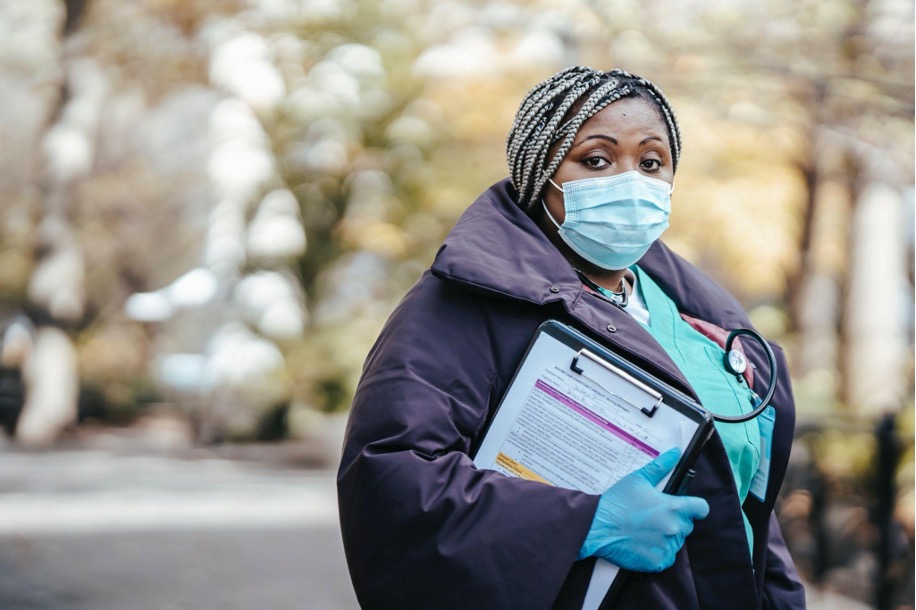
Why America Needs Nurses Now More than Ever
It’s 2022 and COVID-19 and its variants still represent a massive threat to public health. At the same time, however, a nursing shortage threatens the effectiveness of healthcare solutions for the general public. Now, estimates suggest that 1.2 million more registered nurses (RNs) will be needed by 2030 to adequately serve the populace.
This flood of demand has made RNs America’s most wanted healthcare worker. Now, we need nurses more than ever. And yet, the causes of the nursing shortage continue to rage, limiting our ability to replace retiring nursing staff.
Facing major implications for public health, evaluating and solving these causes is essential. Understanding is the first step in a healthcare environment more inviting for professional nurses.
What is Causing the Nursing Shortage?
First, let’s look at some of the measurable causes of the nursing shortage. These are observed patterns in the data that reflect bottlenecks and challenges that may come to affect the way most of us receive care in the future, should the situation not improve. These causes include:
- The aging population. Lifespans, birthrates, and advancing medicine have all contributed to a changing demographic. By 2030, it’s estimated that one in five people will be a senior. This is an age group that requires more care and more nurses to care for them.
- Retiring nurses. Similarly, healthcare workers themselves are aging up. With one-third of the workforce age 50 or older, retirements are occurring faster than nursing staff can be replaced. This is a problem exacerbated by the next cause of the worsening nursing shortage.
- Limited newcomers. Nursing schools can only train so many people. Meanwhile, the COVID-19 pandemic has been challenging on many learning institutions. The rate of new to retiring nurses isn’t enough to make up for lost workers, and patients are the worse for it.
All these causal factors were present in the healthcare industry even before the pandemic emerged, but COVID drove the shortage to new depths. That’s because pandemic conditions have redoubled our reliance on nursing staff and overburdened them to the point of frequent burnout.
In a survey of 6,500 critical care nurses, 66% said they were considering leaving their careers because of their COVID experiences. Meanwhile, 92% said that nurses at their hospitals had cut their careers short as a result of burnout. These numbers represent vital healthcare staff that we cannot afford to lose. And yet, the shortage is a looming threat impacting us all.
America is in desperate need of nurses but the conditions of the job as well as larger social factors make it exceptionally difficult to fill the gaps. Incentives and workloads have to be adjusted if we are to change these circumstances in the future.
In the meantime, what exactly are the implications of not enough nurses in our hospitals and care facilities? These will be the effects we’ll see play out unless this negative trend is disrupted.
The Effects of Not Enough Nurses
A world with too few nurses is a world in which no one should want to live. These care professionals fulfill many of the most important functions within a care institution. Without their work, being seen and treated for any and all health conditions would take longer and would be less effective. The consequences of such a reality would be negative for everyone involved — from the average patient to the doctor who would then have to take on a much greater burden.
As you explore the question of America’s nursing shortages, keep in mind the associated effects. These include:
- Longer care wait times and expenses. Nurses take care of just about all the care-related tasks that don’t require a doctor’s training to legally treat. This includes record-keeping and administrative functions. The fewer nurses available to check in with patients, move them along, and conduct vital care processes, the longer patients will have to wait for care. Meanwhile, relying on more highly trained medical staff for every procedure all but guarantees higher costs for patients.
- A lack of empathy in care. Empathy is essential to care. There is something healing in the simple act of a human being listening and being friendly, and nurses provide this empathy in heaps. Where it is applied in healthcare, empathy has been found to improve care satisfaction and even reduce burnout rates in hospital staff. However, human professionals are needed to practice empathy.
- A greater reliance on tech. Amidst nursing shortages, care practices are increasingly turning to tech to fill labor gaps. The implications of these tools are enormous. Chatbots, for instance, are taking down patient symptomsand computing diagnoses, sometimes with even greater efficiency than human workers. As these tools improve, some healthcare roles may even be automated out of existence.
A world with too few nurses presents too many challenges for society to accept. Instead, the industry looks to potential solutions for staffing and supporting care facilities while inspiring new generations of nurses. With a need this desperate, the healthcare industry must apply all the tools and tricks necessary to reduce nursing labor gaps.
A Life-Threatening Need
When it comes to healthcare, labor shortages present real risks to life and well-being. That’s why the 1.2 million nurses needed within the next eight years is a scary number. Without nurses, care is longer, worse, and more robotic. However, this last point may also be part of the solution.
Just as artificial intelligence presents certain risks to human workers (such as displacement), it can produce benefitsas well. Through automated data collection, chatbot interfaces, personal medical AI, and more, healthcare work is changing for the better. This means reduced workloads for nurses and potentially less-stressful work environments in which to care for patients.
The causes of the nursing shortage may be too widespread and human to fully correct. However, supportive technology may help to reduce the negative implications of this shortage and even encourage up-and-coming talent. Perhaps when nurses all have personal AIs to make the job easier, nursing schools won’t be able to handle the flood of compassionate individuals wanting to save lives and make a difference.
**Article Image Source: Pexels
 Katie Brenneman is a passionate writer specializing in lifestyle, mental health, activism-related content. When she isn’t writing, you can find her with her nose buried in a book or hiking with her dog, Charlie. To connect with Katie, you can follow her on Twitter.
Katie Brenneman is a passionate writer specializing in lifestyle, mental health, activism-related content. When she isn’t writing, you can find her with her nose buried in a book or hiking with her dog, Charlie. To connect with Katie, you can follow her on Twitter.
